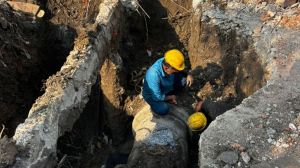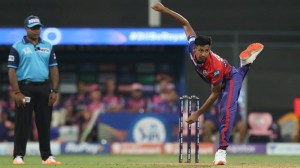Poor students suffer the most as schools lack basic infrastructure
While the Uttar Pradesh Government8217;s decision to introduce English in class I has been widely applauded...

While the Uttar Pradesh Government8217;s decision to introduce English in class I has been widely applauded, the ground reality of primary and upper primary education up to class VIII in the state is abysmal.
The academic session started more than a fortnight ago, but lakhs of students in the state have yet to receive books, which the state Government is supposed to provide free of cost. The maintenance work in schools has been neglected: the roofs of many buildings are leaking, and the classrooms are filthy. Kitchen sheds for preparing mid-day meals have not been constructed yet. Teachers have been assigned non-academic work like conducting surveys of voter I-cards.
None of these problems stems from a lack of funds. In fact, in the last financial year, the state spent around Rs 2,700 crore under the Sarva Shiksha Abhiyan 8212; more than any other state. The problems are mismanagement, a lack of planning and the absence of accountability in the system.
The books should have been supplied to the state headquarters by mid-June. Instead, they arrived a few days back, and then some mistakes were found, including a misprinted national flag and decidedly defective maps. The distribution of books was then stopped, and the corrected books are not yet available.
The maintenance work, like the repair and whitewashing of school buildings, is supposed to be completed during summer vacation. But that did not happen. 8220;We are now waiting for the monsoon to end, because maintenance work cannot take place in this season,8221; said Pankaj Gupta, an education officer in Lucknow. As for the kitchen sheds, Secretary of Basic Education R P Singh has allowed a month for their construction, so that the mid-day meal can be cooked within the school premises. The meals are important because they provide nourishment to poor children and thus provide an incentive for the children to stay in school.
The Sarva Shiksha Abhiyan report on the status quo of primary education in the state for 2007-2008 makes for a depressing read. It says that 3,756 elementary schools in the state do not have drinking water facilities; 12,253 elementary schools do not have toilet facilities; 215 elementary schools do not have a building; 441 schools do not have a single teacher.
Given this state of affairs, it is no surprise that parents prefer to send their children to private schools, even if those schools are unregistered. It is the children in rural areas, where there are no private schools, or those whose parents cannot afford these schools who remain at the mercy of the callous and inefficient system. Grand announcements are fine, but the Government should first do a reality check and sort out its act.
- 01
- 02
- 03
- 04
- 05































